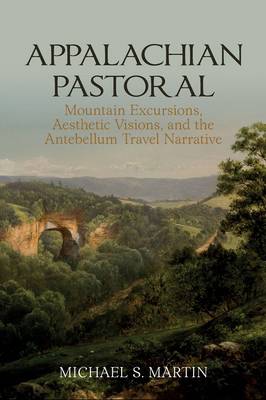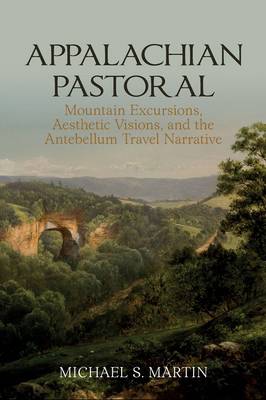
- Afhalen na 1 uur in een winkel met voorraad
- Gratis thuislevering in België vanaf € 30
- Ruim aanbod met 7 miljoen producten
- Afhalen na 1 uur in een winkel met voorraad
- Gratis thuislevering in België vanaf € 30
- Ruim aanbod met 7 miljoen producten
Appalachian Pastoral
Mountain Excursions, Aesthetic Visions, and the Antebellum Travel Narrative
Michael S MartinOmschrijving
This project overall attempts to recast Appalachian literature in terms of a 'lost tradition' of texts that are generally out-of-print though of central importance to understanding the history of the region and its current environmental and cultural challenges. The epilogue will also consider the way that ecological-based literary criticism offers a vital language for how antebellum travel writers sought to frame the region from a 19th-century environmental point of view.
The book aims to resituate the field of Appalachian Studies to an earlier historic genesis in the 19th-century and bring to light several books which have received scant scholarly attention in the canon of Appalachian and American literature, respectively. The book centers on the argument that mid-19th-century travel writers going through or from the Appalachian region drew on familiar versions of 18th-century European, mainly British, landscape aesthetics that would help make the readerly experience less alien to their erudite regional and Northern audiences. These travel writers, such as Philip Pendleton Kennedy and David Hunter Strother, consciously appropriated such aesthetic tropes as the pastoral as a way to further dramatic the effect in their nonfiction accounts of Appalachia, while the reader could find such references comforting as they considered whether to domesticate or tour the Appalachian region.
Specificaties
Betrokkenen
- Auteur(s):
- Uitgeverij:
Inhoud
- Aantal bladzijden:
- 208
- Taal:
- Engels
- Reeks:
Eigenschappen
- Productcode (EAN):
- 9781638040187
- Verschijningsdatum:
- 1/01/2023
- Uitvoering:
- Hardcover
- Formaat:
- Genaaid
- Afmetingen:
- 155 mm x 224 mm
- Gewicht:
- 430 g

Alleen bij Standaard Boekhandel
Beoordelingen
We publiceren alleen reviews die voldoen aan de voorwaarden voor reviews. Bekijk onze voorwaarden voor reviews.











